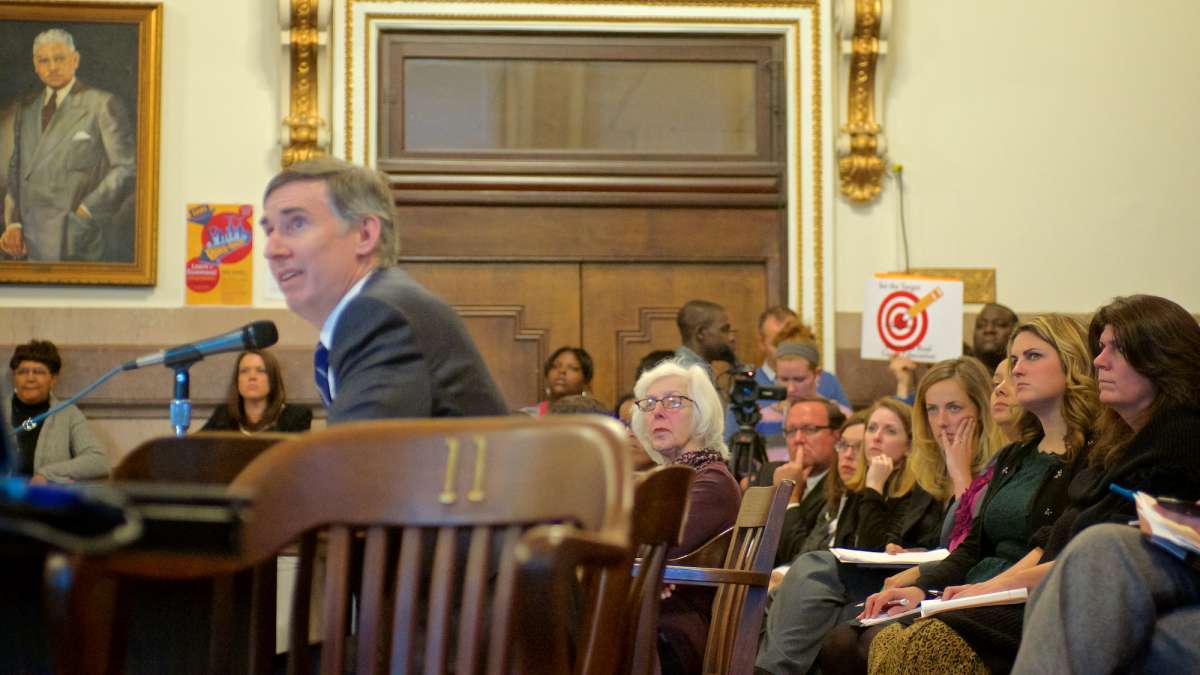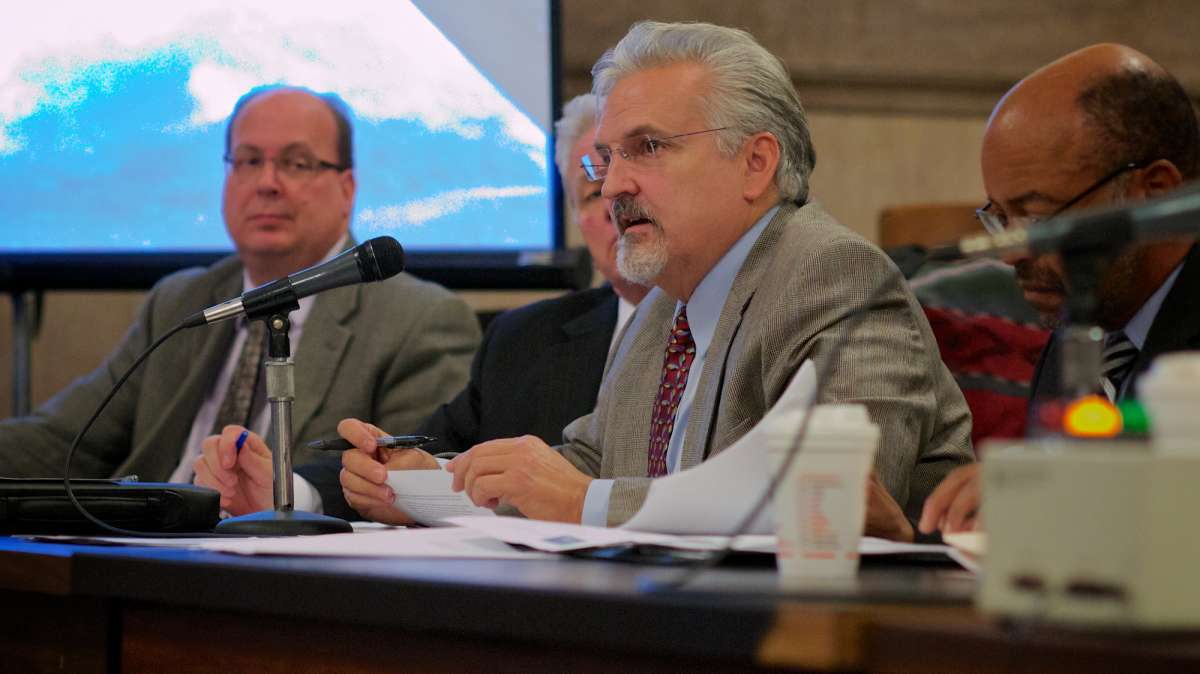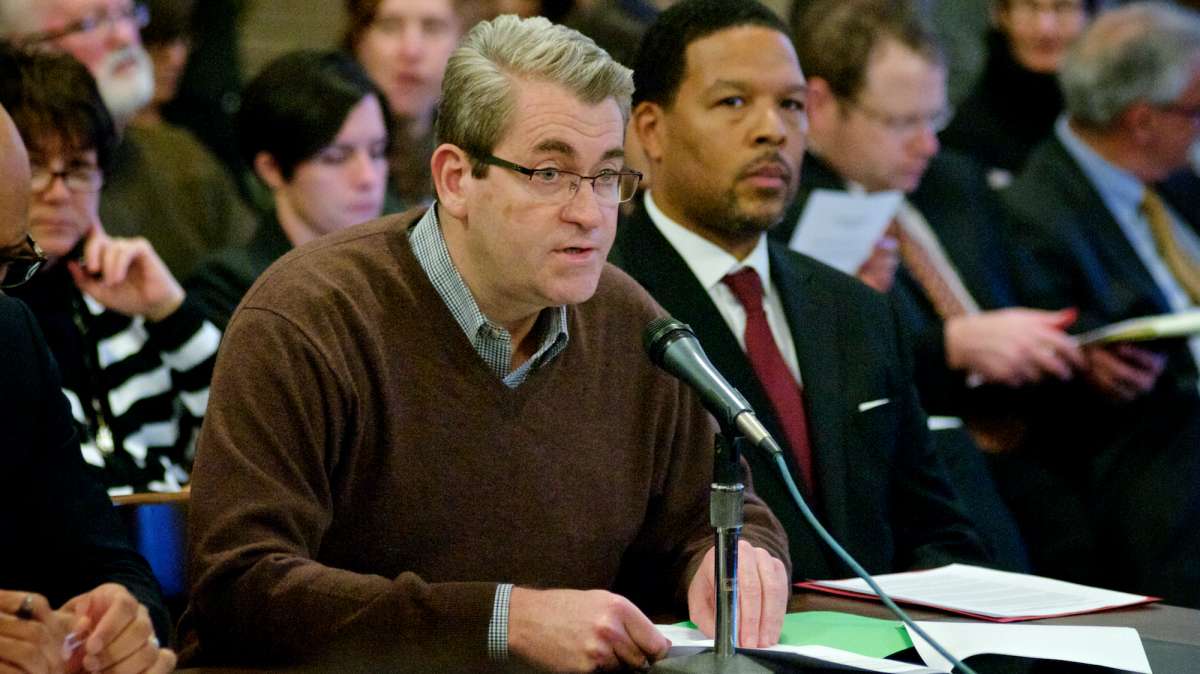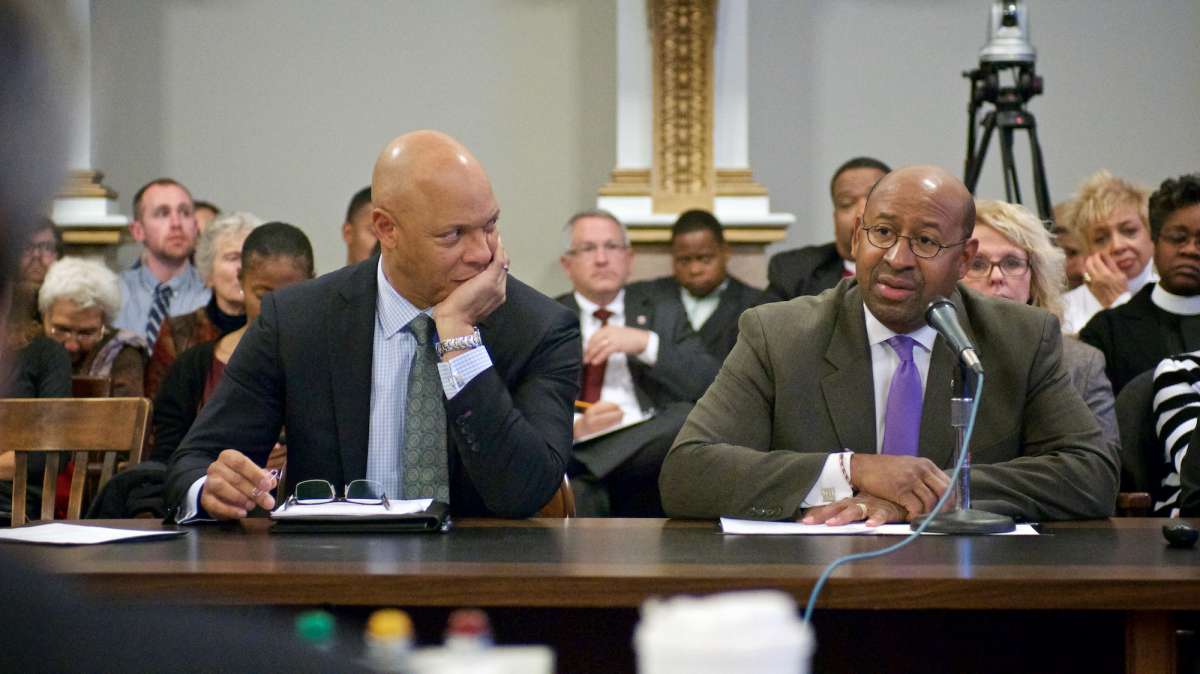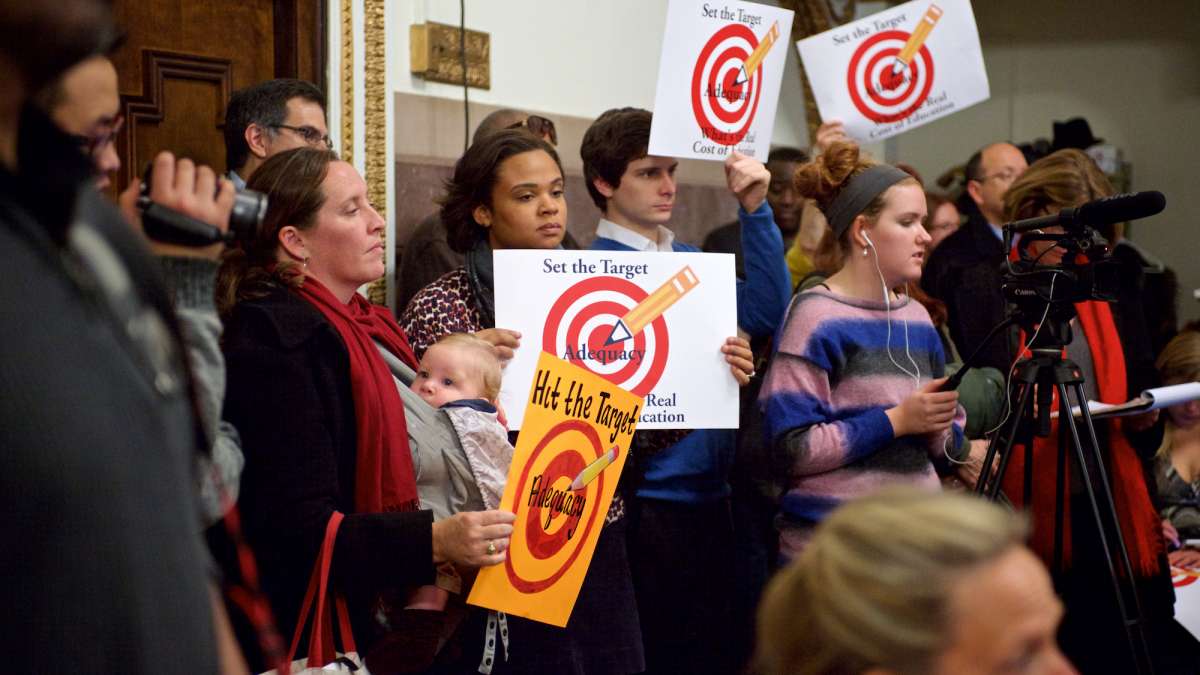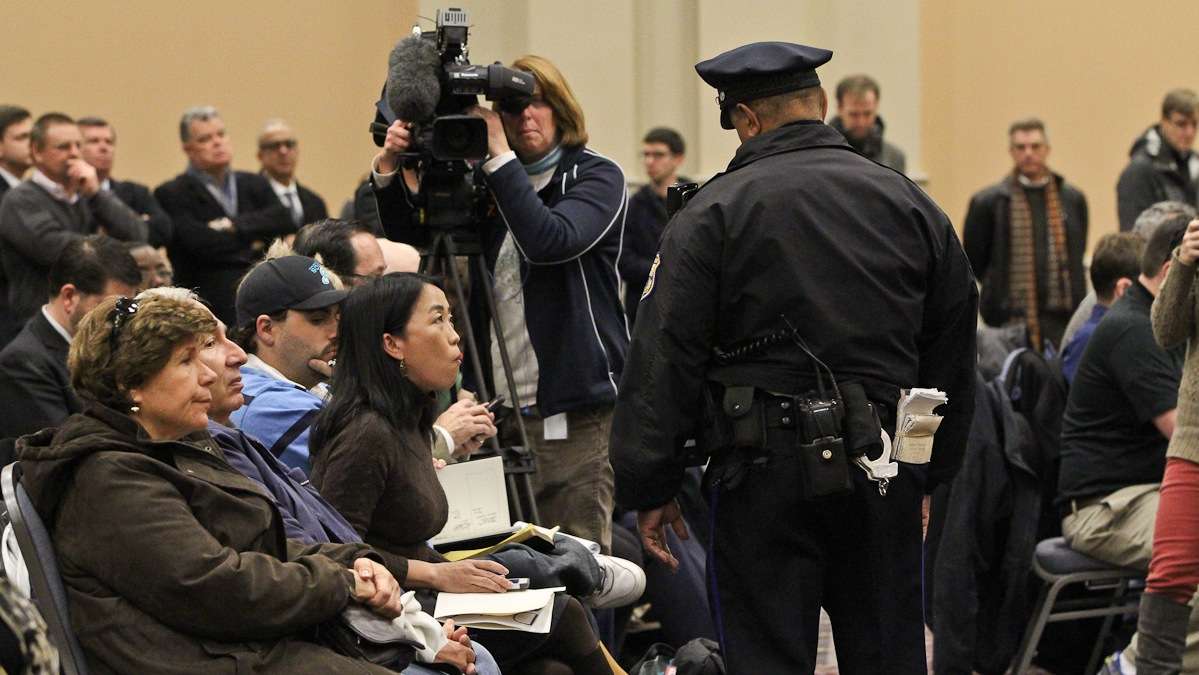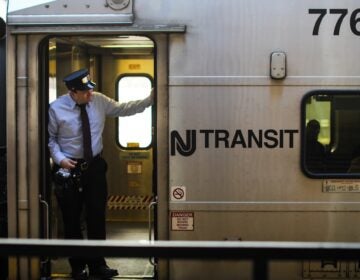No joy in South Philly about new casino neighbor
ListenThe Pennsylvania Gaming Control Board may have made its final decision, but unhappy neighbors are almost certainly bound for court in an attempt to block a second Philadelphia casino from being built in South Philadelphia.
Recent opposition to a possible stadium-district casino has been spearheaded by Barbara Capozzi of the Sports Complex Special Services District. Capozzi was present at Tuesday’s announcement by the gaming commission, but declined to comment on her next moves, other than to say that her group remained opposed to all aspects of the South Philadelphia gambling hall plan.
But at a lively community meeting last week, Capozzi and other casino opponents raised fears familiar to anyone who watched the process that lead to Philadelphia’s first casino. Among the concerns: parking, traffic, crime, debt-driven foreclosures and even drops in property values.
Capozzi and her allies vowed that night to fight to keep the casino out. But even if they fail, gambling opponents might find encouragement a few miles north in Fishtown, home to Sugarhouse Casino.
There, too, neighbors worried about gambling’s impact. Four years later, one former casino opponent says, those fears have not come to pass.
“I think that we were all very concerned that traffic and crime was going to be a major problem in the neighborhoods. And, as a result of the casinos, we haven’t seen that,” said Sandy Salzman, head of the New Kensington Community Development Corporation.
There are plenty of traffic issues in the neighborhood, she said, but they’re mostly related to construction on and around I-95. And while there’s been a spike in foreclosures around the area, she says, there’s no way to tell how many may be connected to gambling. Most casino visitors seem to go from the highway to the gaming floors and back to the highway again without detouring into residential areas, she said.
And not only has Sugarhouse created relatively few new problems, it’s also sending thousands of dollars each year to community groups like hers — the result of a “Community Benefits Agreement” established between Sugarhouse and the neighborhood groups long before the casino opened.
“It’s been really beneficial to the community — to Northern Liberties, to Fishtown, to Kensington South — all the community groups have been able to apply,” said Salzman. Her CDC won about $50,000 last year to replace its roof and façade. “As long as you’re a nonprofit, you can get funding.”
Whether the new South Philadelphia casino will do the same thing is uncertain. But longtime casino opponent Paul Boni, a land use attorney and board member of Stop Predatory Gambling, says that just because a casino isn’t creating a visible crime wave, doesn’t mean it isn’t doing damage.
“Problem gamblers and gambling addicts do have a high rate of criminal activity, fraud, and embezzlement,” he said. “You read the media reports for anybody arrested for embezzlement from their employer, and you read down a few paragraphs and you see inevitably that it’s because the person has a gambling problem.”
Boni said child abuse, domestic problems and personal bankruptcy are other problems exacerbated by easy access to casinos. They may not be as obvious as street crimes or traffic jams, he said, but they’re just as much a threat to communities.
“It’s just outrageous to put a casino that’s open 24 hours a day, seven days a week, that can offer free drinks, that has an exemption to the smoking ban, that offers easy credit on the gambling floor, in residential neighborhoods in Philadelphia. We are the biggest city in the country with casinos within our border,” he said. “That’s a shame.”
The Pennsylvania Gaming Control Board’s decision is not necessarily final. The losing bidders have 30 days to appeal, and neighbors and others could choose to litigate the issue on their own.
WHYY is your source for fact-based, in-depth journalism and information. As a nonprofit organization, we rely on financial support from readers like you. Please give today.



